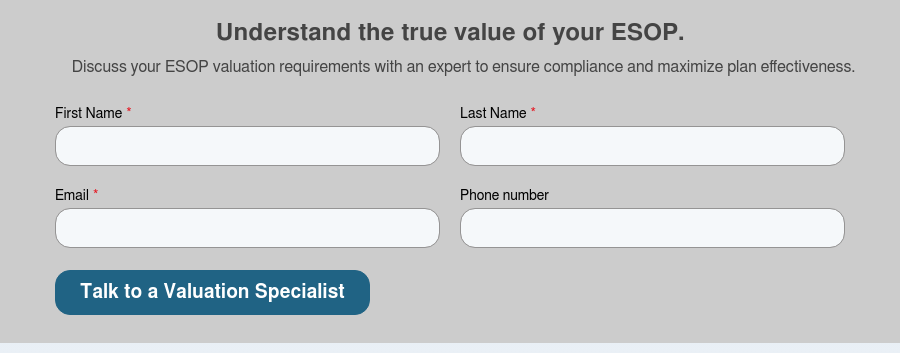Industry Trends
Largest Transactions Closed
- Target
- Buyer
- Value($mm)

Last updated:
Revenue Ruling 59-60 remains a fundamental guideline in ESOP valuations, but it’s not enough on its own. ESOPs require a broader, more rigorous valuation process that aligns with Department of Labor (DOL) expectations and withstands legal scrutiny. At PCE, we integrate RR 59-60 within a comprehensive framework that meets today’s fiduciary standards.
Issued in 1959 by the IRS, Revenue Ruling 59-60 (RR 59-60) provides general guidance on valuing closely held businesses for estate and gift tax purposes. It outlines eight factors that should be considered when determining the fair market value of private company stock:
These principles provide a solid baseline for valuing a private company. However, additional factors need to be considered when the valuation is used for an Employee Stock Ownership Plan (ESOP).
While RR 59-60 is still referenced in nearly every ESOP valuation, it was never designed for this purpose. ESOPs are governed by a different regulatory framework under ERISA (the Employee Retirement Income Security Act of 1974). This means the valuation must not only be technically sound, but also defensible in the event of an audit, legal challenge, or DOL investigation.
In addition to RR 59-60, ESOP appraisers often rely on multiple valuation methods and/or adjustments to reach fair market value:
Applying these methods and/or adjustments provides a more nuanced and defensible valuation for ESOP trustees and fiduciaries.
While ESOP valuations have unique fiduciary requirements, M&A-based valuations (like purchase price allocation requirements under ASC 805) also offer insight into how appraisers assess fair value in transaction settings.
We integrate RR 59-60 with best practices from our M&A experts. PCE’s internal fairness opinion committee includes investment bankers and valuation experts who understand deal dynamics from both sides of the table. We have real-world experience closing hundreds y M&A deals. This enables us to provide better insight into seller representations, warranties, and indemnification clauses that protect the purchaser, including the ESOP.
Revenue Ruling 59-60 still matters, but it’s not a one-size-fits-all solution for ESOP valuations. At PCE, we’ve helped hundreds of companies structure ESOP Transactions and also helped trustees appraise hundreds of ESOP formations. When starting your next ESOP Transaction, call us - our experience will allow you to navigate the process with confidence.
For a deeper understanding of what internal trustees should know when overseeing the valuation process, download our guide for internal trustees on ESOP valuations.

Daniel Cooper
Daniel Cooper is a Managing Director at PCE and plays a key role in the firm’s valuation practice. He specializes in ESOP valuations and estate planning, advising clients across industries on financial reporting, tax, and transaction-related valuation matters.
Valuation
New York Office
201-425-1671 (direct)
dcooper@pcecompanies.com
Connect
201-425-1671 (direct)
407-621-2199 (fax)